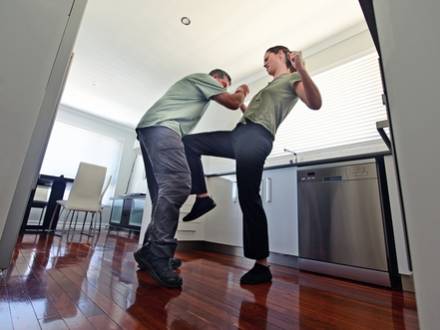Can I Claim Self-Defense in an Illinois Domestic Battery Case?
 Arguments at home can escalate quickly, and sometimes police are called in to calm the situation. Often, officers make an arrest even when the facts are unclear. If you are facing a domestic battery charge, self-defense may still be a valid legal argument. An experienced Elgin, IL domestic violence attorney can explain how Illinois law views self-defense, what must be proven in court, and what types of evidence can strengthen your case.
Arguments at home can escalate quickly, and sometimes police are called in to calm the situation. Often, officers make an arrest even when the facts are unclear. If you are facing a domestic battery charge, self-defense may still be a valid legal argument. An experienced Elgin, IL domestic violence attorney can explain how Illinois law views self-defense, what must be proven in court, and what types of evidence can strengthen your case.
Understanding Illinois’s Self-Defense Laws
Under 720 ILCS 5/7-1, a person may use reasonable force if they honestly and reasonably believe it is necessary to stop another person’s unlawful use of force. However, the response must match the threat. Deadly force is only justified when someone reasonably believes that it is needed to prevent death or great bodily harm. You do not have to be injured first, but the danger must be immediate. Additionally, the level of force cannot be excessive.
According to the legal definition of domestic battery, under 720 ILCS 5/12-3.2, charges arise when someone knowingly causes bodily harm or makes insulting or provoking contact with a family or household member. In more serious cases, such as strangulation or cases involving injuries that cause lasting harm, prosecutors may pursue aggravated charges with harsher penalties. In either situation, if the facts support it, self-defense can be used as a defense.
How Do You Prove Self-Defense in a Domestic Battery Case?
Illinois uses a burden-shifting system. Once the defense introduces some evidence of self-defense, the prosecution must prove beyond a reasonable doubt that the accused did not act in self-defense, and jurors must consider the entire context. Who initiated the confrontation? Were any threats made? What were the relative sizes and strengths of the parties involved? Were there any weapons present? Was the force that was used proportional to the perceived danger? If someone used more force than necessary, or re-engaged after the threat was no longer present, the self-defense claim can fail.
Consistency is key. Statements made to doctors, the timing and nature of injuries, and early witness accounts can all show that your actions were defensive. A history of threats or violence by the accuser may also help your case. However, prior incidents involving you could also be brought up depending on the judge’s ruling and the evidence rules. You need an experienced attorney to help you build your case.
Evidence That Can Help Your Self-Defense Claim
Strong, timely evidence often makes the difference between positive and negative outcomes in these cases. Forms of evidence that may support your defense include:
-
911 calls and dispatch logs showing who contacted authorities first
-
Police body-cam, dash-cam, or home security footage from the incident
-
Photos of injuries, damaged clothing, or property taken soon after the incident
-
EMT notes or medical records confirming injuries and their timing
-
Testimony from neighbors, family members, or roommates who witnessed or heard the events
-
Texts, emails, or social media posts demonstrating threats or later retractions by the accuser
-
Evidence that you attempted to withdraw, sought help, or cooperated with officers
-
Prior-incident evidence prosecutors may try to admit under 725 ILCS 5/115-7.4, weighed against rules that limit unfair prejudice
Contact a Kane County, IL Domestic Violence Defense Attorney Today
If you were arrested after a family dispute, you must act quickly to protect your rights. At The Law Office of Brian J. Mirandola, Attorney Brian J. Mirandola focuses his practice on criminal defense and brings valuable insight from his time as a former Assistant State’s Attorney. He knows how prosecutors build cases and will work strategically to challenge their evidence, exclude unfair material, and present a strong self-defense claim.
Whether your case calls for negotiation or trial, you will have a knowledgeable advocate on your side. To get trusted guidance from an Elgin, IL domestic violence lawyer, contact us at The Law Office of Brian J. Mirandola for a free consultation.








